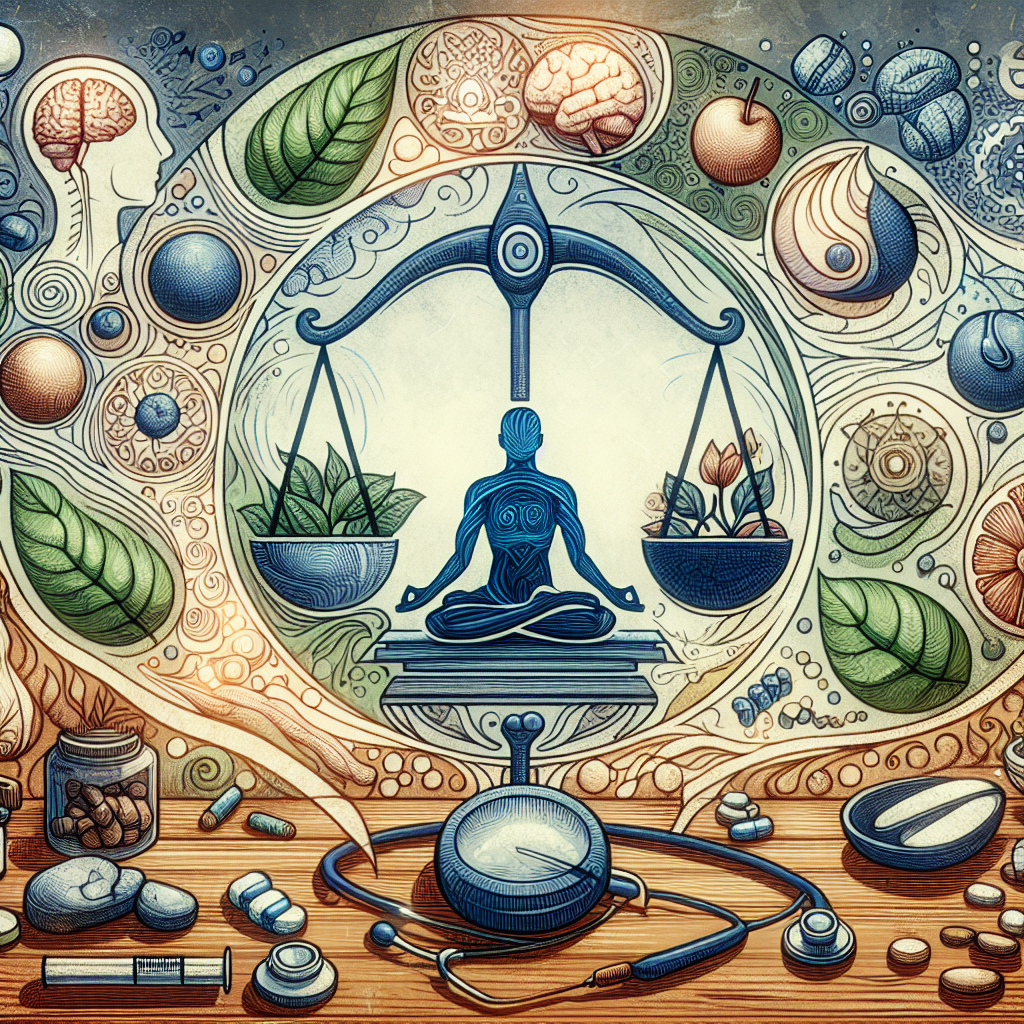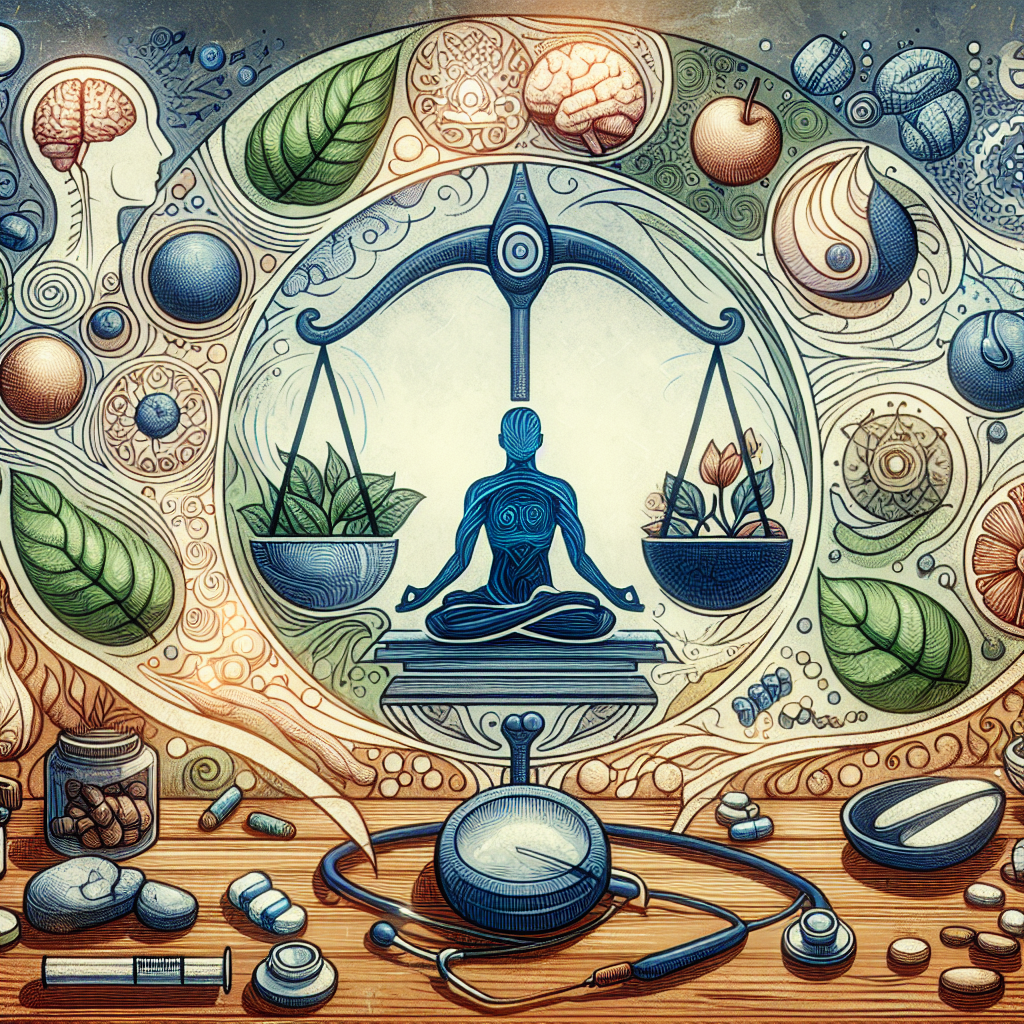Are you tired of relying solely on traditional medicine to treat your ailments? It might be time to consider the numerous benefits of holistic medicine. In a world where we are constantly bombarded with quick fixes and temporary solutions, holistic medicine takes a different approach. It focuses on treating the whole person – mind, body, and spirit – rather than just the symptoms. By addressing the root causes of illness and promoting balance in all aspects of life, holistic medicine offers a gentle yet powerful alternative that can improve your overall well-being. So, if you’re ready to embark on a journey towards true healing, holistic medicine might be just the answer you’ve been searching for.

Definition of Holistic Medicine
Holistic medicine is an approach to healthcare that considers the whole person – body, mind, and spirit – rather than just focusing on the symptoms of a particular illness or condition. It emphasizes the interconnectedness of various aspects of a person’s health and seeks to address the underlying factors that may contribute to illness or imbalance. Holistic medicine is based on the belief that optimal health can only be achieved by treating the whole person, rather than separating the body and mind.
History of Holistic Medicine
Traditional Healing Systems
Holistic medicine has its roots in ancient healing practices that have been used for centuries across different cultures. Traditional healing systems such as Ayurveda, traditional Chinese medicine (TCM), and Native American medicine have long recognized the importance of a holistic approach to health. These systems emphasize the balance and harmony of the whole person and use natural remedies, herbs, and lifestyle modifications to restore and maintain health.
Emergence of Modern Holistic Medicine
The modern concept of holistic medicine emerged in the late 20th century, influenced by various factors such as the growing dissatisfaction with conventional medical approaches, the rise of complementary and alternative therapies, and a shift towards a more patient-centered approach to healthcare. The term “holistic medicine” was coined to describe this integrative approach that combines conventional and complementary therapies to address the physical, mental, emotional, and spiritual well-being of individuals.
Principles of Holistic Medicine
Holistic medicine operates based on several key principles:
-
Individualization: Recognizing that every person is unique and requires personalized care tailored to their specific health needs and circumstances.
-
Prevention: Focusing on preventing illness before it occurs by promoting healthy lifestyle choices, early detection, and proactive interventions.
-
Integration: Combining conventional medical treatments with complementary therapies to provide a comprehensive approach to address the underlying causes of illness.
-
Mind-Body-Spirit Connection: Acknowledging the interconnectedness of the mind, body, and spirit and their influence on overall health and well-being.
-
Empowerment: Encouraging individuals to actively participate in their own healthcare decisions and take responsibility for their well-being.
Integrated Approach to Health
Holistic medicine takes an integrated approach to health by considering the various aspects of a person’s well-being and how they may interact with each other. It recognizes that physical symptoms may be influenced by emotional and psychological factors, and vice versa. Rather than treating symptoms in isolation, holistic medicine aims to uncover the underlying causes of illness, which may involve addressing imbalances at multiple levels – physical, mental, emotional, and spiritual.
A holistic healthcare practitioner will take into account your medical history, lifestyle factors, stress levels, and emotional well-being when developing a treatment plan. This approach allows for a more comprehensive understanding of your health and helps tailor interventions that promote healing and wellness in a holistic manner.

Mind-Body Connection
One of the fundamental principles of holistic medicine is the recognition of the mind-body connection. It acknowledges that mental and emotional factors can significantly impact physical health and vice versa. Stress, for example, has been shown to contribute to numerous health conditions, including cardiovascular disease, digestive disorders, and compromised immune function.
Holistic medicine encourages practices that promote relaxation, stress reduction, and emotional well-being, such as meditation, deep breathing exercises, yoga, and mindfulness. By addressing the mind-body connection, holistic medicine aims to restore balance and promote optimal health.
Preventive Focus
Rather than solely focusing on treating existing illnesses, holistic medicine places a significant emphasis on prevention. It recognizes that adopting healthy lifestyle habits, such as regular exercise, nutritious diet, adequate sleep, and stress management, can play a crucial role in preventing disease and promoting overall well-being.
Holistic medicine practitioners work closely with individuals to develop personalized prevention plans that take into account their unique health needs, risks, and goals. By addressing risk factors and implementing preventive measures, individuals can reduce their chances of developing chronic diseases and enhance their overall quality of life.
Importance of Patient-Doctor Relationship
In holistic medicine, the patient-doctor relationship is of utmost importance. Holistic healthcare practitioners prioritize building a strong rapport with their patients, taking the time to listen attentively to their concerns, and involving them in their own healthcare decisions. This collaborative approach allows for a deeper understanding of the patient’s health needs and goals, and fosters a sense of trust, empathy, and mutual respect.
By establishing a strong patient-doctor relationship, individuals can feel more comfortable sharing their health concerns, experiences, and preferences, leading to more effective and personalized treatments. The open dialogue between the patient and doctor also ensures that the holistic approach can be fully integrated into the individual’s healthcare plan.
Consideration of Lifestyle Factors
Holistic medicine recognizes that lifestyle factors play a significant role in overall health and well-being. Factors such as diet, exercise, sleep, stress management, and social connections all contribute to a person’s overall vitality and disease risk. By evaluating and addressing these lifestyle factors, holistic medicine aims to optimize health outcomes and prevent chronic diseases.
Holistic healthcare practitioners provide guidance on healthy lifestyle choices and help individuals implement sustainable changes. They may recommend dietary modifications, exercise programs, relaxation techniques, and stress management strategies tailored to the individual’s needs. By considering lifestyle factors, holistic medicine supports individuals in achieving optimal health and well-being.
Alternative and Complementary Therapies
Holistic medicine embraces a wide range of alternative and complementary therapies that can be used alongside conventional medical treatments. These therapies include acupuncture, chiropractic care, naturopathy, herbal medicine, massage therapy, and energy healing practices, among others. The selection of therapies depends on the individual’s specific health needs and preferences.
Alternative and complementary therapies can enhance the effectiveness of conventional medical treatments, alleviate symptoms, promote relaxation and well-being, and support the body’s natural healing processes. Holistic healthcare practitioners carefully select and integrate these therapies into a comprehensive treatment plan to address the specific health concerns of each individual.
Benefits for Chronic Conditions
One of the significant benefits of holistic medicine is its potential to provide relief and support for individuals living with chronic conditions. Chronic conditions, such as cardiovascular disease, diabetes, autoimmune disorders, and chronic pain, often require long-term management and can significantly impact a person’s quality of life. Holistic medicine can complement conventional treatments by addressing the underlying causes of illness, promoting overall health, and enhancing the body’s ability to heal and recover.
By considering the physical, mental, emotional, and spiritual aspects of a person’s health, holistic medicine offers a comprehensive and individualized approach to chronic conditions. Through the integration of various therapies and lifestyle modifications, individuals can experience improved symptom management, enhanced well-being, and greater control over their health journey.
In conclusion, holistic medicine offers a comprehensive, patient-centered approach to healthcare that recognizes the interconnectedness of various aspects of a person’s health. By considering the physical, mental, emotional, and spiritual well-being of individuals, holistic medicine aims to address the underlying causes of illness and promote optimal health and well-being. With its emphasis on prevention, integration of therapies, and personalized care, holistic medicine has the potential to provide numerous benefits for individuals seeking a more holistic approach to their healthcare.



